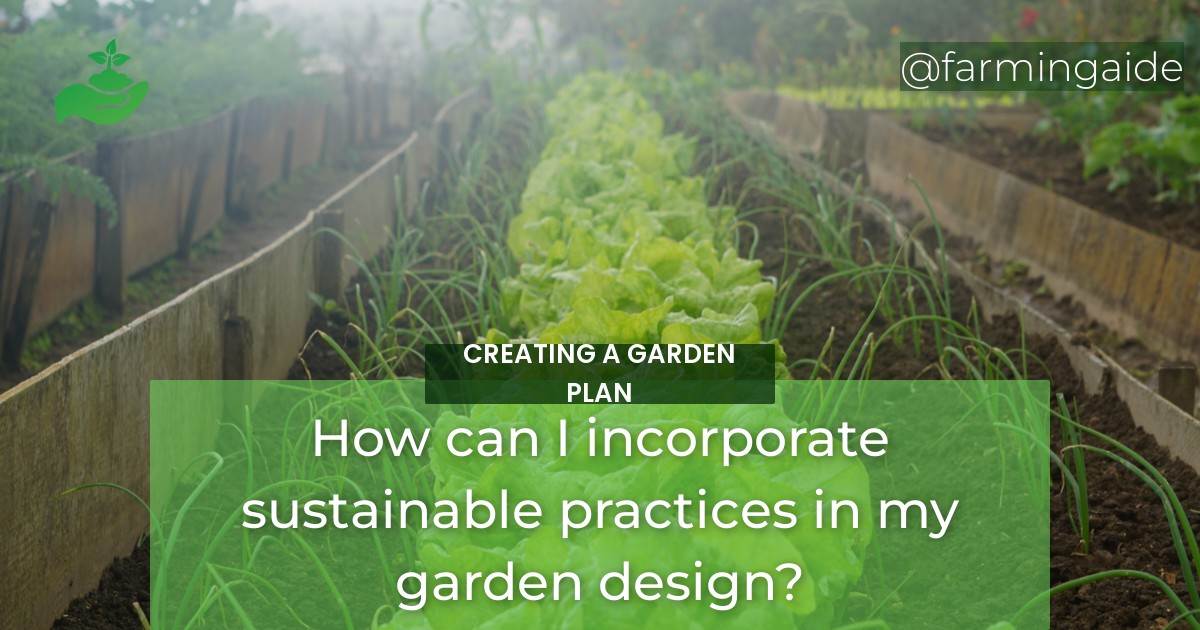Creating a sustainable garden is not only a way to support the environment but also a way to save money and increase the health of your family. Sustainable garden design involves utilizing eco-friendly practices that focus on preserving natural resources, reducing waste, and supporting the local ecosystem. In this article, we will discuss several strategies for incorporating sustainable practices in garden design to ensure that your garden is both beautiful and sustainable.
Importance of Sustainable Practices in Garden Design
Sustainable garden design is essential for preserving the environment and supporting the local ecosystem. By implementing sustainable practices, you can reduce your carbon footprint and minimize the amount of waste produced in your garden. Eco-friendly gardening practices also ensure that your garden is self-sufficient and does not rely on harmful chemicals or synthetic fertilizers.
Strategies for Incorporating Sustainable Practices in Garden Design
Rainwater Harvesting
Rainwater harvesting is an excellent way to reduce water usage and ensure that your garden plants receive a consistent supply of water. By collecting rainwater in barrels or other containers, you can use it to water your garden and reduce reliance on city water supplies. Rainwater is also free of chemicals and additives, making it ideal for plants that are sensitive to synthetic fertilizers.
Composting
Composting is a natural and effective way to manage garden waste and produce nutrient-rich soil. By composting kitchen scraps, leaves, and other organic materials, you can create a sustainable source of fertilizer that supports healthy plant growth. Compost also helps improve soil structure, drainage, and aeration, which leads to healthier plants and increased biodiversity in the garden.
Using Organic Fertilizers
Using organic fertilizers is another way to support sustainable garden design. Organic fertilizers are made from natural sources such as manure, bone meal, and fish emulsion, and are free of synthetic chemicals and additives. These fertilizers provide essential nutrients to plants and improve soil health without harming the environment.
Proper Plant Selection
Choosing the right plants for your garden is crucial for sustainable garden design. Native plants are ideal for supporting local ecosystems and require less water and maintenance than non-native species. Additionally, selecting plants that are well-suited to your climate and soil type can also reduce the need for synthetic fertilizers and pesticides.
Soil Health and Management
Soil health is a critical component of sustainable garden design. By improving soil health through organic practices such as mulching, crop rotation, and cover cropping, you can increase soil fertility and reduce erosion. Healthy soil also supports beneficial microbes and organisms that contribute to plant growth and overall garden health.
Eco-Friendly Pest Control
Eco-friendly pest control is an essential part of sustainable garden design. Instead of using harmful chemicals and pesticides, consider using natural remedies such as companion planting, crop rotation, and physical barriers. These methods can help reduce pest populations without harming beneficial insects or the environment.
ALSO READ
Benefits of Sustainable Garden Design
Environmental Benefits
- Reduces carbon footprint
- Preserves natural resources
- Supports local ecosystems
- Reduces water usage
- Reduces waste
Economic Benefits
- Saves money on water and fertilizer
- Improves soil health and reduces erosion
- Increases property value
- Provides a source of fresh produce
Health Benefits
- Provides a source of physical activity
- Reduces stress and anxiety
- Provides access to fresh, healthy produce
- Improves air and water quality
What are some sustainable gardening practices that can be incorporated into my garden design, specifically for my climate zone?
When designing your garden, consider sustainable gardening practices for your specific climates. Incorporating native plants, using rain barrels for water conservation, and implementing composting techniques are all great ways to create an eco-friendly garden tailored to your climate zone.
Conclusion
Incorporating sustainable practices in garden design is essential for preserving the environment, supporting local ecosystems, and promoting overall health and wellness. By utilizing eco-friendly practices such as rainwater harvesting, composting, and organic fertilizers, you can create a beautiful and sustainable garden that supports the well-being of your family and community.
RELATED ARTICLES:


